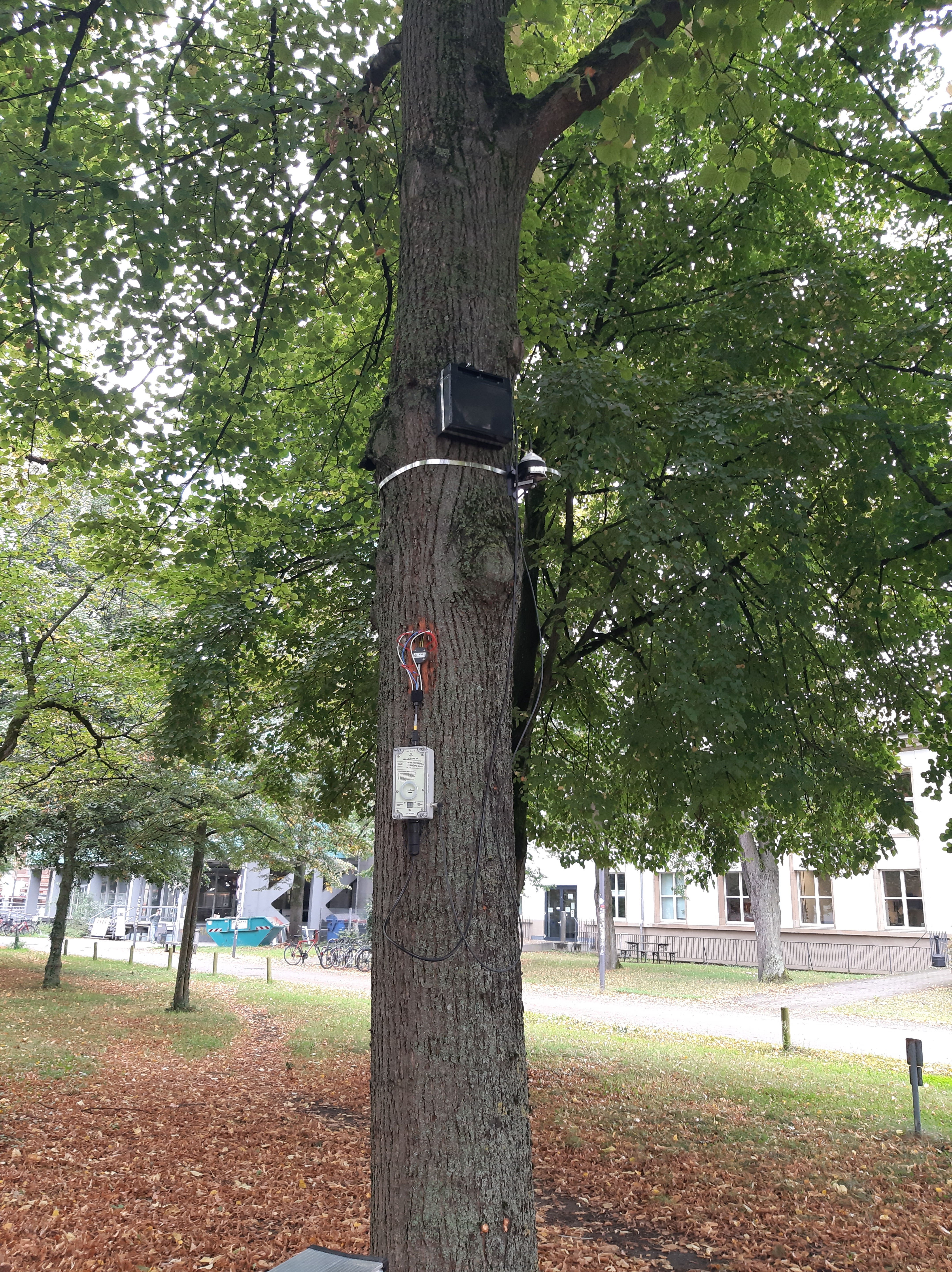URBORETUM Work Package TreePulse: City trees under drought- relating functional ecology to remote sensing
- Contact:
- Project Group:
Vegetation
- Funding:
Bundesministerium für Bildung und Forschung-BMBF
- Partner:
ITAS-KIT, Professorship of Silviculture-University of Freiburg, Central Institute of Mental Health Mannheim (ZI), RINNTECH-METRIWERK GmbH & Co KG, greeHill Deutschland GmbH, Horticultural Office, City of Karlsruhe
- Startdate:
February 2024
- Enddate:
January 2029

A big number of trees are dying prematurely in cities across the globe before achieving the desired dimension as droughts become lengthier, more frequent, and more severe. A healthy population of urban trees is essential for human well-being and a climate-resilient city. The URBORETUM project deals with the causes and extent of the decline in urban tree vitality. Since it is a collaborative project, we have several work packages lead by different institutions. The goal of our work package TreePulse is to examine the health of the individual urban tree to elucidate the mechanisms behind premature tree death and recommend suitable tree species for specific urban environments. We will identify factors contributing to the vitality decline by employing an in-situ experiment with urban trees, field observation, and time series analysis of satellite imagery of four German cities (Karlsruhe, Heidelberg, Mannheim, and Freiburg). Six broadleaf species (Tilia tomentosa, Celtis australis, Platanus acerifolia, Aesculus hippocastanum, Quercus rubra, Ostrya carpinifolia) growing in the streets and parks of the cities have been selected. From 2024 on we will continuously measure stem growth, sap flow, crown dieback, internal trunk damage, rooting space, water availability, micro-climatic parameters, as well as light availability, soil physical and chemical properties. Terrestrial LiDAR scanning data of single-standing trees have been collected during 2024, and later will be linked with multispectral remote sensing data to create a vitality map of city trees.
This study will link basic plant stress biology to applied aspects of mitigating drought-induced tree mortality in urban ecosystems. The research outcome is thought to prevent tree death by taking proper action by gardeners, landowners, and city foresters.
